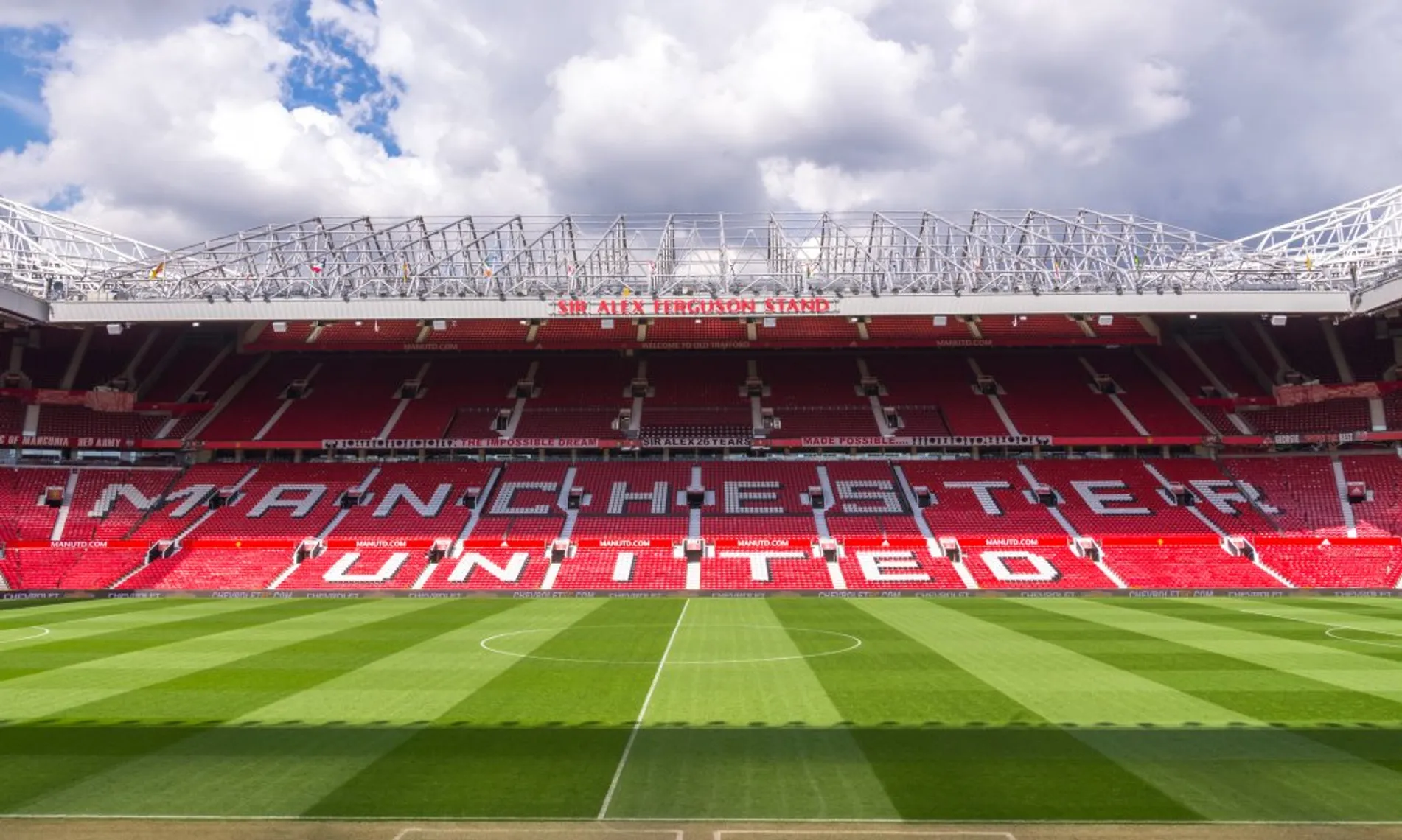Manchester United shareholders: Who owns the most MANU stock?
Manchester United (MANU), one of the most widely recognised names in world football, continues to evolve both on and off the pitch. Over the past year, the club has undergone significant operational restructuring under INEOS, alongside progress in its long-term stadium and regeneration plans.
This article explores who owns Manchester United in 2025, recent structural and management developments, and what they could mean for the club’s shareholders.
What is Manchester United?
Manchester United (MANU) is among the most successful football clubs in history, with 13 Premier League titles, 12 FA Cups and three UEFA Champions League trophies, among other domestic and international honours.
The club’s home ground, Old Trafford, remains one of the most iconic venues in world sport. Over the years, it has hosted some of football’s most celebrated players, including George Best, Ryan Giggs, Cristiano Ronaldo and Wayne Rooney.
As of November 2025, Manchester United plc serves as the club’s parent company, listed on the New York Stock Exchange (NYSE).
Infrastructure and stadium strategy
Between April and October 2025, Trafford Council approved Manchester United’s strategic development framework for the Old Trafford and Trafford Wharfside area. The plan aims to create up to 48,000 jobs and 15,000 homes, generating an estimated £4bn in economic impact.
The club is advancing plans for a new 100,000-capacity stadium, envisioned as both a modern football venue and a community hub. The initiative underscores Manchester United’s commitment to long-term regeneration and commercial growth, while preserving its historic connection to Old Trafford.
Past performance is not a reliable indicator of future results.
Who owns Manchester United shares?
Manchester United plc is incorporated in the Cayman Islands, with its corporate headquarters at Old Trafford, Manchester. As of 14 November 2025, ownership is split among institutional investors, mutual funds and retail shareholders, as follows:
| Type | Common stock held | % of shares outstanding | Market value |
|---|---|---|---|
| Mutual funds & ETFs | 12.31m | 7.14% | $191.61m |
| Other institutional investors | 71.48m | 41.45% | $1.11bn |
| Public companies & retail investors | 88.64m | 51.40% | $1.38bn |
| Total | 172.43m | 100% | $2.68bn |
This marks a notable shift in governance since 2024, transitioning from Glazer family dominance to a more hybrid ownership model that emphasises restructuring and investment.
Top institutional shareholders
As of late 2025, the largest institutional holders of Manchester United stock are:
| # | Holder | % of holding | Shares held | Value (in $1,000s) |
|---|---|---|---|---|
| 1 | INEOS Limited | 28.93% | 49.88 million | 776,143 |
| 2 | Ariel Investments, LLC | 5.23% | 9.02 million | 140,420 |
| 3 | Lindsell Train Limited | 2.54% | 4.38 million | 68,098 |
| 4 | Kegt Holdings LLC | 2.18% | 3.77 million | 58,589 |
| 5 | Omega Capital Partners, L.P. | 1.66% | 2.86 million | 44,469 |
The inclusion of INEOS as the primary operational controller represents one of the most significant ownership shifts since the club’s NYSE listing in 2012. The transition has enabled a more agile governance model, integrating commercial oversight with football operations.
Top mutual fund holders
| # | Holder | % of holding | Shares held | Value (in $1,000s) |
|---|---|---|---|---|
| 1 | Ariel Investment Trust – Ariel Fund | 2.21% | 3.81 million | 59,304 |
| 2 | WS Lindsell Train UK Equity Fund | 2.20% | 3.79 million | 59,027 |
| 3 | Finsbury Growth & Income Trust PLC | 0.68% | 1.18 million | 18,325 |
| 4 | Ariel Appreciation Fund | 0.54% | 0.93 million | 14,517 |
| 5 | Janus Henderson Venture Fund | 0.33% | 0.57 million | 8,853 |
Combined, these holdings reflect a gradual increase in long-term institutional participation, consistent with confidence in Manchester United’s restructuring and infrastructure-led approach.
Source: Investing.com, 14 November 2025.
Final thoughts
Manchester United’s transformation under Sir Jim Ratcliffe and INEOS marks a defining moment in the club’s modern history. The move from family ownership to a partnership model combining industrial and sporting expertise is reshaping how the club operates both financially and competitively.
Create an account Open a demo account
FAQ
How many Manchester United shares are there?
As of November 2025, Manchester United plc has approximately 172.43 million shares outstanding, according to the company’s most recent filings. This figure includes both Class A and Class B common stock, which are listed on the New York Stock Exchange (NYSE) under the ticker MANU.
How many shareholders does Manchester United have?
Manchester United plc (MANU) has over 130 institutional investors and mutual funds, based on the latest disclosures filed with the US Securities and Exchange Commission (SEC). In addition, public companies and retail investors collectively hold around 51.4% of total shares, reflecting a diverse shareholder base and a range of investment objectives.
Who owns Manchester United?
The largest shareholder in Manchester United plc is INEOS Limited, which holds 28.93% of the company’s stock and oversees football operations under Sir Jim Ratcliffe’s leadership. The remaining shares are divided among institutional investors (41.45%), mutual funds (7.14%), and public and retail investors (51.4%), based on market data compiled in November 2025. This ownership structure highlights a mixed model of corporate and public investment, consistent with the club’s listing on the NYSE.
Can I trade Manchester United shares as CFDs?
Yes. Contracts for difference (CFDs) allow traders to speculate on Manchester United’s share price movements without owning the underlying stock. This means you can open a long position if you expect the price to rise, or a short position if you expect it to fall.
CFD trading provides exposure to MANU’s share price movements and can be conducted using leverage, which magnifies both potential profits and potential losses.